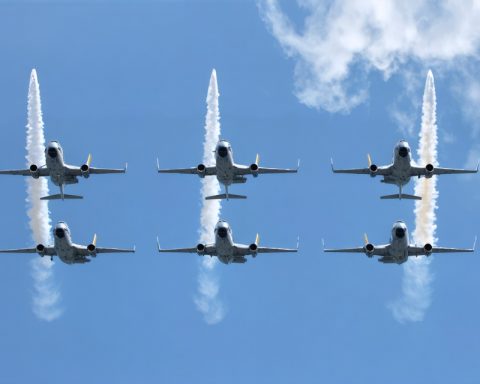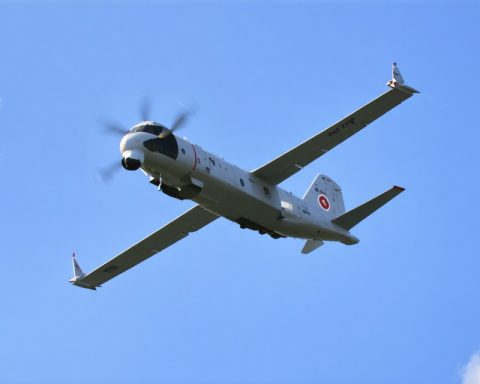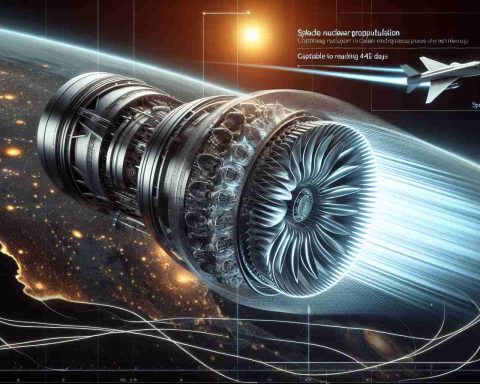Unlocking New Potentials: The Technological Leap
The United Kingdom’s Ministry of Defence has unveiled the Spear 3 missile, positioning it as a revolutionary force in precision weaponry. This technological marvel may not only influence air combat but also set a precedent for future military innovations. What lies beneath its compact design, and how might it impact humanity and the development of new technologies?
The Spear 3’s ability to be deployed from the stealthy F-35B without compromising its low radar signature marks a significant advancement in military technology. The integration of foldable wings and advanced navigation systems showcases a forward-thinking approach in weapon design, potentially influencing the development of future technologies beyond military applications, such as satellite systems and autonomous navigation technology in other industries.
Interesting Facts and the Science Behind
The incorporation of real-time reassignment capabilities within the Spear 3 system enables unprecedented flexibility in dynamic battlefield environments. This adaptability could inspire advancements in artificial intelligence-driven decision-making systems, paving the way for AI to make real-time decisions in complex scenarios, thus enhancing human-machine collaboration.
A fascinating yet controversial capability of the Spear 3 is its use of electronic warfare technology, a feature that allows it to disrupt enemy communications and radar systems. This adds a layer of strategic depth but also raises ethical questions about the fine line between defense and offensive dominance.
Weighing the Advantages and Disadvantages
Advantages:
– Extended Range and Precision: Spear 3 provides tactical advantages with its ability to strike from a safe distance, reducing risk to pilots.
– Stealth and Flexibility: Its stealth capability and compactness allow it to be deployed with minimal detectability.
– Real-Time Adaptation: Enhances decision-making on the battlefield, ensuring operational effectiveness even in complex scenarios.
Disadvantages:
– Escalation of Arms Race: Advanced weaponry could lead to an escalation and proliferation of similar technologies, pushing competing nations to develop countermeasures.
– Ethical Concerns: The use of autonomous systems in decision-making for warfare brings about moral and ethical dilemmas.
Future Perspectives: Questions and Insights
What does the Spear 3 mean for the drone industry? Can the innovations in missile technology translate to advancements in UAV (unmanned aerial vehicle) systems, making them more efficient and adaptable? The potential is significant, with industries keenly observing military innovations for crossover applications.
What about cybersecurity? As weapons systems become more technologically advanced, the risk of cyber threats looms. The development of advanced cyber defense mechanisms will likely see a corresponding increase to safeguard these weapons from hacking or fraudulent use.
Final Thoughts
Ultimately, the Spear 3 missile represents a leap forward in precision weaponry, heralding a new era of technological innovation and military strategy. As humanity balances on the precipice of technological advancement and ethical responsibility, the potential benefits and dangers of such developments promise to reshape our world in numerous ways.
For more insights into advanced military technology and defense innovations, visit the UK’s Ministry of Defence official site at Ministry of Defence.
From Rocket Science to Real-World Solutions: How Military Innovations Could Shape Our Future
The unveiling of the Spear 3 missile by the UK’s Ministry of Defence marks a significant leap not only in precision weaponry but also in technological development that might soon bleed into everyday technology. But what aspects of this missile technology could revolutionize civilian industries, and what are the implications for futuristic tech advancements?
Spear 3’s Unseen Potential
The stealth capabilities of the Spear 3 aren’t just crucial for military applications. The technology behind minimizing radar signatures could influence the development of civilian drones, enabling them to operate more quietly and efficiently in urban environments. Such advancements could significantly impact sectors such as delivery services and urban planning, where discreet and efficient air transportation is increasingly desirable.
Controversies and Ethical Dilemmas
Emerging technologies, inspired by military innovations, often tread a fine line between beneficial and potentially harmful. Would the adoption of electronic warfare tactics for civilian purposes raise new ethical questions? Imagine a future where businesses compete using electronic disruptions, affecting communications and digital operations. The ethical implications of widespread electronic interference in both public and private sectors warrant careful consideration.
The Dual-Use Dilemma: Pros and Cons
Pros:
– Cross-Industry Innovation: Technologies developed for military use often find civilian applications, driving innovation across industries.
– Enhanced Safety and Efficiency: Potential advancements in navigation systems could lead to safer autonomous vehicles and smarter city management.
Cons:
– Security Threats: As technology becomes more sophisticated, the risk of it falling into the wrong hands or becoming a target for cyber-attacks increases.
– Economic Inequality: Access to advanced technologies could widen the gap between nations, with wealthier countries often benefiting first.
Pondering the Future
Will these military innovations trickle down to create a smarter, more interconnected world or contribute to escalating global tensions? As industries study these advancements, the focus is on harnessing their potential for long-term human benefit while managing their inherent risks.
As we venture further into this new era of technological evolution, it’s crucial to weigh these possibilities. For those intrigued by defense technologies’ impact on civilian life, visit the Ministry of Defence’s main website at Ministry of Defence.












